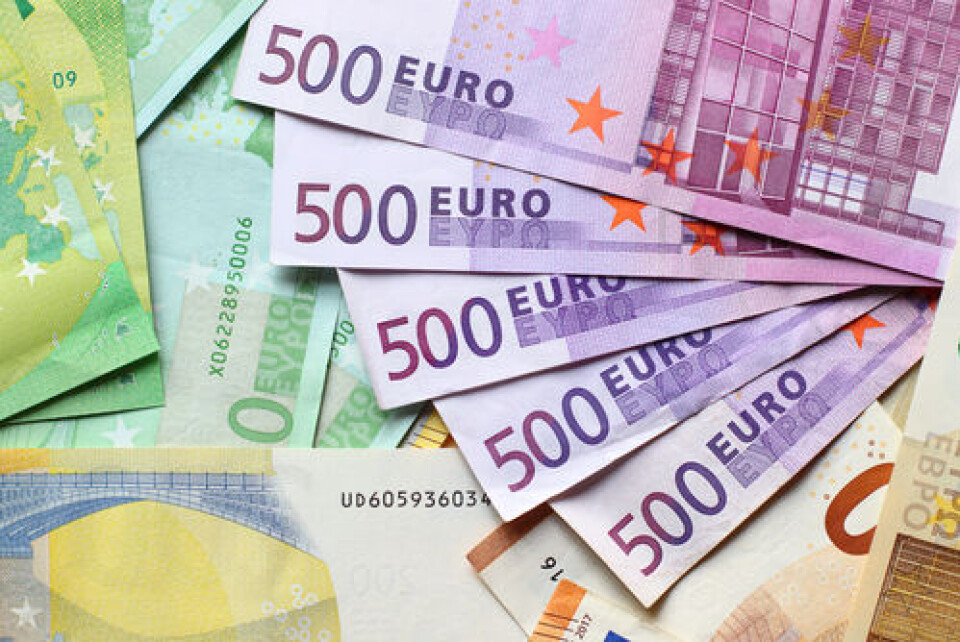-
World corruption: France better than US but worse than UK
High-level public figures in France have a ‘feeling of impunity’, the ranking says
-
Best value 2026 Michelin French restaurants: Are there any near you?
Four regions did especially well on this year’s Bib Gourmand restaurant list
-
Senators examine proposal to guarantee access to cash machines in rural areas of France
Some 18.6% of French communes had access to at least one local ATM in 2024
How much do you need to earn to count as rich in France?
Around 4.5 million people fall within this rich line threshold in France, which equates to seven per cent of the population

The poverty line is a longstanding concept used by international institutions but a French organisation has looked at the other end of the spectrum and defined a ‘rich line’.
A single person is considered rich in France when they earn at least €3,673 net per month, or €5,500 for a childless couple and €7,700 for a couple with two children.
These figures have been set by the independent think-tank the Observatoire des inégalités.
Just as the poverty line is situated at half the median household income, according to the OECD definition, the seuil de richesse (‘rich line’) is double the median income after taxes and social contributions, which in 2019 was €1,837.
Seven per cent of the population fall within the rich line
Around 4.5 million people fall within this rich line threshold, which equates to seven per cent of the population.
In its latest report, the group laments the fact it is alone in investigating the topic in France.
Read more: It is claimed the French do not care about money, but is it true
Director Louis Maurin wrote: “The public statistics institute does not judge it relevant to pose the question, while in Germany a ‘rich line’ has been published for the last 20 years.”
The organisation has, however, acknowledged that, to have a reliable indicator of wealth, it would be necessary to take into account other factors.
It suggests, for example, adding to the income of homeowners the value of rent they would otherwise have to pay, and taking into consideration varying rent prices in different areas of the country.
The definition still goes further than most countries, where there is little consensus over what makes a person rich.
One exception is a report by academics at Loughborough and Birmingham universities and the London School of Economics in 2020 called Living on Different Incomes in London: Can public consensus identify a ‘riches line’?.
France one of the few countries to tax acquired wealth
In that study, members of the public identified five levels of living standards, from the ‘minimum socially acceptable’ to the ‘super rich’, according to more qualitative factors such as home ownership and frequency of holidays. While the ‘rich line’ is yet to be adopted by public institutions, France already defines what it believes to be the very richest subset of the population with the annual Impôt sur la fortune immobilière (IFI, property wealth tax).
It is one of the very few countries to impose a tax on acquired wealth rather than income.
It is imposed on people who own more than €1.3million-worth of property worldwide (with a main home discounted at 30%) on January 1 of any given year.
Read more: Explained: France’s property wealth tax is not as scary as you think
In 2020, 143,337 households were covered by the IFI, representing 0.5% of all households, figures from the Direction Générale des Finances Publiques show.
The 16th arrondissement in Paris is where the largest number are to be found – 9,460 in 2021.
As property prices have risen in recent years, more people are now likely to be liable.
Read more: How do I find out the estimated value of property online in France
It is up to individuals to have their property valued and declare if they believe they might fall into the eligibility bracket.
Related links
Five tips to enjoy a long and financially secure retirement in France
Best way for Britons in France to manage lump sums of money
Will Bernard Tapie’s family choose to inherit his wealth and debts
























